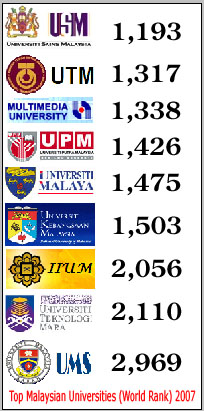The Cabinet on Wednesday should strike out the Education Minister, Datuk Seri Hishammuddin Hussein’s directive under Section 8 of 1996 Education Act in unlawfully and unconstitutionally barring national primary school pupils from transferring to Tamil or Chinese primary schools although a revers transfer is allowed.
As pointed out by DAP MP for Ipoh Barat, M. Kulasegaran last week, many parents have complained that they have not been able to transfer their children from national primary schools to Tamil or Chinese primary schools, as the policy of the Education Ministry is to allow only a one-way transfer – from Tamil or Chinese primary schools to national primary schools but not vice versa.
Kulasegaran cited the case of a 37-year-old woman who had sent two appeals to the Education Ministry to transfer her eight-year-old son from national primary school to a Tamil primary school, but was rejected on both occasions on the policy ground of “racial integration”. Continue reading “Hishammuddin’s directive barring transfer of SK pupils to SJKT/SJKC unlawful & unconstitutional”

